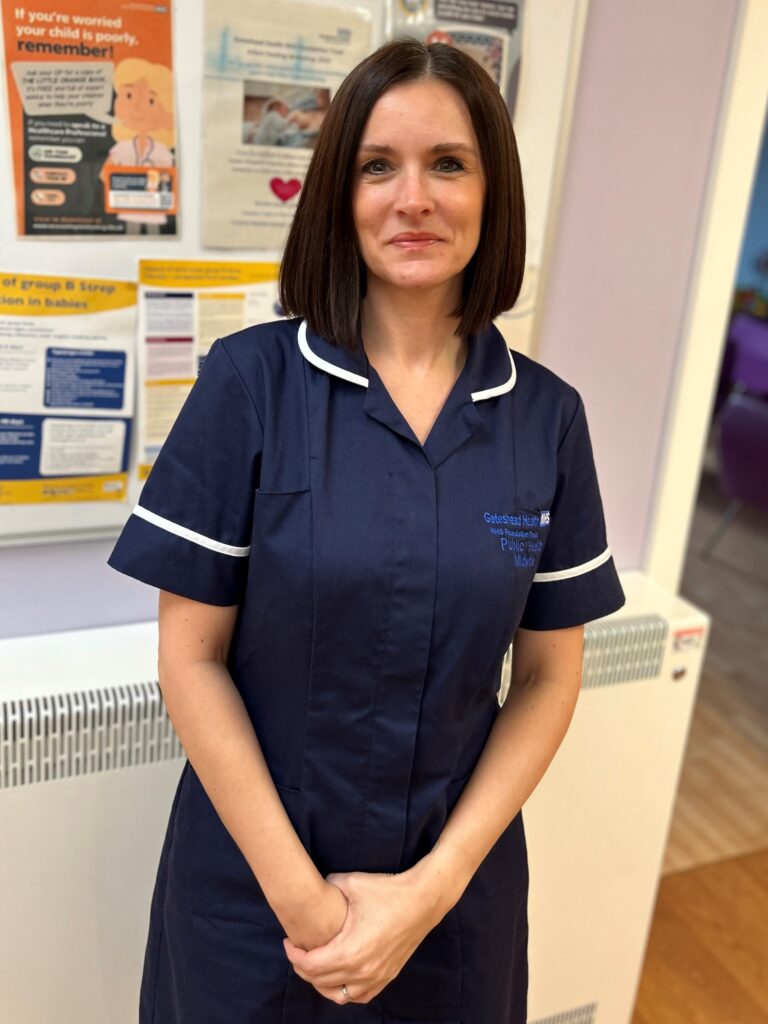Gateshead Health NHS Foundation Trust is making waves in the region with its commitment to women’s health. An important part of that care is maternity services.
When a woman finds out she is pregnant, her care should be consistent and personalised to meet her needs. This is especially true in the postnatal period, the first six to eight weeks after birth. Postnatal care should be a continuation of the care the woman has received through her pregnancy, labour, and childbirth, and it should consider her individual needs and preferences.
We recently spoke with Debbie Corbett, the Public Health Lead midwife at Gateshead Health. Debbie’s role involves service improvement and addressing the public health agenda. She works closely with the maternity teams to integrate their work streams into daily patient care, primarily to reduce health inequalities. Her role is critical in ensuring we deliver safe and effective care.

Debbie had some exciting news to share with us. Gateshead Health is working with the Maternal and Neonatal Voices Partnership (MNVP) to listen to, understand, and improve its services. The NHS Maternity and Neonatal Voices Partnership is a program that ensures the voices of patients, families, and staff are heard in developing maternity and neonatal policies and services. It brings together people with lived experience of using maternity and neonatal services with healthcare professionals and policymakers to co-create solutions that meet the needs of all involved. The partnership helps improve the quality and safety of care by ensuring that it is person-driven, evidence-based and reflects the population’s diverse needs.
Another early-stage initiative under women’s health is the regional-wide project NHS Perinatal Pelvic Health Service. This specialised service supports pregnant women and new mothers experiencing pelvic health problems. These problems can include urinary incontinence, pelvic pain, and pelvic organ prolapse. The service offers assessments, advice, and treatment options to help manage these issues and improve the quality of life during and after pregnancy. The goal is to provide a safe and supportive environment for women to discuss their concerns and receive the appropriate care.
Once a woman has given birth, she remains in the delivery suite for a few hours to get familiar with her new arrival. Every new mother gets her much-needed round of toast and a cup of tea. After this, she is moved to the postnatal ward, where various support staff are on hand to help and provide advice. This includes staff such as midwives, support workers, and domestics who help with feeding tasks and looking at how mothers want to feed their new baby, from breast milk to formula or a mixture of both.
New mothers and their families can be overwhelmed with the information given to them, especially if it is their first baby. Supporting staff are always on hand to provide postnatal care and assistance. Depending on what type of birth the mother has had will determine the kind of care and help required or wanted.
There is a lot of signposting on the wards advising on contraception and the different types available. This links in with the questions being raised during the mother’s third trimester when community midwives ask parents to start to think about what kind of contraception they might use after the baby has arrived. Gateshead was one of the first in the region to begin using the Badger App. All maternity notes and requirements are recorded on this app. This application also echoes the postnatal signposting and advice you will see around the maternity wards.
Debbie had some critical messages to think about and share.
Firstly, start to think about contraception early on, even though it might not seem important at the time when the person is pregnant. However, the World Health Organisation does recommend safe pregnancy spacing for the mother to recover physically and mentally, and the minimum is between 12 to 18 months. So, contraception is critical.
Secondly, rest when you can while maintaining mobility when it is suitable.
Thirdly, mental health is vital, and it is often overlooked when the mayhem of a new baby arrives at home, and the family unit evolves and changes. Gateshead Family Hubs are a fantastic resource and support in the local area, offering mental health support, infant feeding advice, different parental classes, and the opportunity to socialise with people going through the same stages.
Debbie Corbett, Public Health Lead midwife at Gateshead Health
Gateshead Health NHS Foundation Trust is leading the way in providing comprehensive postnatal care that prioritises the individual needs of new mothers and their families. With initiatives like the NHS Perinatal Pelvic Health Service and the Maternal and Neonatal Voices Partnership, Gateshead Health is setting the standard for women’s health in the region.